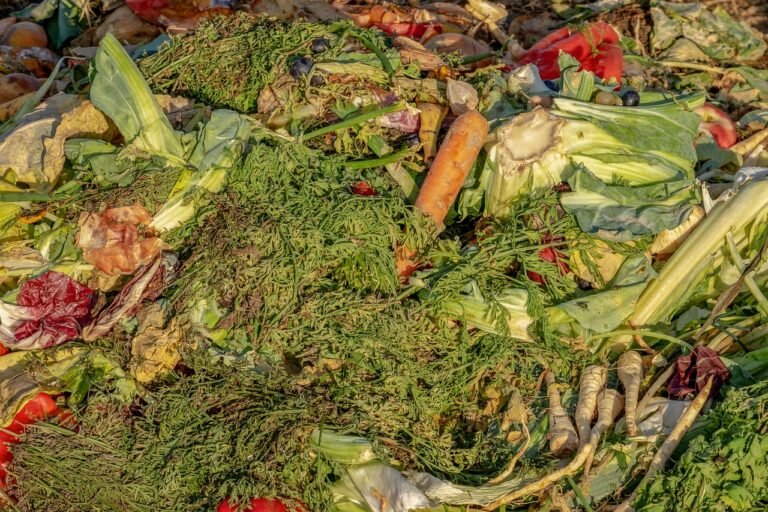
Organic gardening is gaining popularity as more people recognize the importance of sustainable practices and the benefits of natural products. One key component of organic gardening is the use of organic fertilizers. These natural fertilizers offer numerous advantages for both your garden and the environment. Here’s a comprehensive guide for North American readers on the benefits of using organic fertilizers in your garden.
1. What Are Organic Fertilizers?
Definition:
- Organic Fertilizers: Organic fertilizers are derived from natural sources such as plant and animal matter. They include compost, manure, bone meal, blood meal, fish emulsion, and green manure.
Types of Organic Fertilizers:
- Compost: Decomposed organic matter that enriches soil with nutrients and improves its structure.
- Manure: Animal waste that adds essential nutrients like nitrogen, phosphorus, and potassium to the soil.
- Bone Meal: Ground animal bones that provide phosphorus and calcium, promoting root and flower development.
- Blood Meal: Dried animal blood that is rich in nitrogen, boosting leafy growth.
- Fish Emulsion: A liquid fertilizer made from fish waste, offering a balanced nutrient profile.
- Green Manure: Cover crops that are grown and then tilled into the soil to add organic matter and nutrients.
2. Benefits of Organic Fertilizers
Soil Health:
- Improved Soil Structure: Organic fertilizers enhance soil structure by increasing its organic matter content, leading to better aeration and water retention.
- Microbial Activity: They promote the growth of beneficial soil microorganisms, which help decompose organic matter and release nutrients for plant uptake.
- Long-Term Soil Fertility: Unlike synthetic fertilizers, organic fertilizers build soil fertility over time, creating a sustainable growing environment.
Nutrient Availability:
- Balanced Nutrition: Organic fertilizers provide a broad range of essential nutrients, including nitrogen, phosphorus, potassium, and trace minerals.
- Slow Release: Nutrients are released slowly, ensuring a steady supply over time and reducing the risk of nutrient leaching and runoff.
Environmental Benefits:
- Reduced Pollution: Organic fertilizers are less likely to cause water pollution through runoff, as they release nutrients slowly and are less soluble than synthetic fertilizers.
- Lower Carbon Footprint: They have a smaller carbon footprint since they are derived from natural sources and often produced locally.
- Biodiversity: Promoting healthy soil ecosystems supports a diverse range of organisms, contributing to overall garden biodiversity.
Plant Health and Productivity:
- Stronger Plants: Organic fertilizers help produce stronger, more resilient plants that are better able to withstand pests and diseases.
- Improved Flavor and Nutrition: Fruits and vegetables grown with organic fertilizers often have better flavor and higher nutritional value.
Economic Benefits:
- Cost-Effective: Organic fertilizers can be made at home from kitchen scraps, yard waste, and other readily available materials, reducing the need to purchase commercial fertilizers.
- Sustainable Investment: Investing in organic fertilizers builds long-term soil health, reducing the need for frequent fertilizer applications.
3. How to Use Organic Fertilizers in Your Garden
Soil Preparation:
- Testing Soil: Test your soil to determine its nutrient needs and choose the appropriate organic fertilizers to address any deficiencies.
- Amending Soil: Incorporate organic fertilizers into the soil before planting to provide a nutrient-rich environment for seedlings.
Application Methods:
- Top-Dressing: Apply organic fertilizers to the soil surface around plants, allowing nutrients to leach into the soil with watering or rainfall.
- Side-Dressing: Apply fertilizers alongside rows of growing plants to provide additional nutrients during the growing season.
- Foliar Feeding: Spray liquid organic fertilizers directly onto plant leaves for quick nutrient absorption.
Composting:
- Making Compost: Create compost from kitchen scraps, yard waste, and other organic materials to use as a nutrient-rich soil amendment.
- Using Compost: Spread compost over garden beds and work it into the soil to improve soil structure and fertility.
4. Examples of Effective Organic Fertilizers
Compost:
- Benefits: Enriches soil with nutrients and improves soil structure.
- Application: Spread 1-2 inches of compost over garden beds and work it into the top few inches of soil.
Manure:
- Benefits: Provides essential nutrients like nitrogen, phosphorus, and potassium.
- Application: Apply well-rotted manure to garden beds in the fall or early spring and work it into the soil.
Bone Meal:
- Benefits: Supplies phosphorus and calcium for root and flower development.
- Application: Mix bone meal into the soil at planting time or use it as a top-dressing during the growing season.
Blood Meal:
- Benefits: Rich in nitrogen, promoting leafy growth.
- Application: Sprinkle blood meal around plants and lightly work it into the soil.
Fish Emulsion:
- Benefits: Offers a balanced nutrient profile and is quickly absorbed by plants.
- Application: Dilute fish emulsion with water according to the package instructions and apply it to the soil or use it as a foliar spray.
Green Manure:
- Benefits: Adds organic matter and nutrients to the soil.
- Application: Plant cover crops like clover, rye, or buckwheat, and till them into the soil before they set seed.
5. Tips for Successful Organic Fertilization
Consistency:
- Regular Applications: Apply organic fertilizers regularly throughout the growing season to ensure a steady supply of nutrients.
- Seasonal Adjustments: Adjust your fertilization schedule based on the growth stages of your plants and seasonal changes.
Monitoring:
- Observe Plant Health: Regularly monitor your plants for signs of nutrient deficiencies or excesses and adjust your fertilization practices accordingly.
- Soil Testing: Conduct periodic soil tests to track changes in soil fertility and make informed decisions about fertilization.
Balanced Approach:
- Avoid Over-Fertilization: While organic fertilizers are generally safe, excessive application can still harm plants and the environment. Follow recommended application rates.
- Complementary Practices: Combine organic fertilization with other sustainable gardening practices like mulching, crop rotation, and companion planting.
Using organic fertilizers in your garden offers numerous benefits, from improving soil health and plant productivity to supporting environmental sustainability. By incorporating these natural fertilizers into your gardening routine, you can create a thriving, vibrant garden that nurtures both plants and soil. Embrace the advantages of organic fertilizers and enjoy the rewards of a healthy, sustainable garden. Happy gardening!
